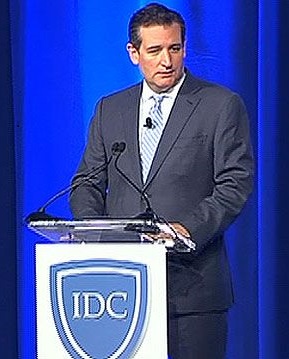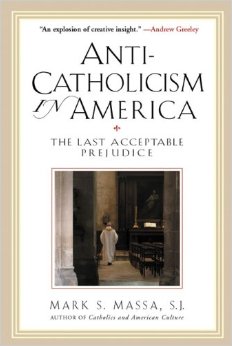 Many people are talking about the confrontation Sen. Ted Cruz (R-Texas) experienced at a speech at a conference hosted by a Washington D.C. organization, In Defense of Christians (IDC). The organization states that it is against the persecution of Middle Eastern Christians and is looking for support from a variety of constituencies. Cruz describes the incident as one where he left due to a vocal minority staging a “shameful display of bigotry and hatred.” In a press release, the IDC countered, “Senator Cruz chose to stand against the small and vocal minority of attendees who disagree with his views on Israel rather than standing with the vast majority of those who attended the gala and support both Israel and the Middle East’s Christians.”
Many people are talking about the confrontation Sen. Ted Cruz (R-Texas) experienced at a speech at a conference hosted by a Washington D.C. organization, In Defense of Christians (IDC). The organization states that it is against the persecution of Middle Eastern Christians and is looking for support from a variety of constituencies. Cruz describes the incident as one where he left due to a vocal minority staging a “shameful display of bigotry and hatred.” In a press release, the IDC countered, “Senator Cruz chose to stand against the small and vocal minority of attendees who disagree with his views on Israel rather than standing with the vast majority of those who attended the gala and support both Israel and the Middle East’s Christians.”
All the news agencies carried coverage of the event. There were numerous takes, some outlets denouncing the IDC, others looking critically at the things Cruz said, and asking why he led with Israel when the event was about Christians? The American Conservative points out that it was in this shift from statements about Christian to ones about Israelis “that some in the audience objected to Cruz turning a celebration of Christian unity into a lecture on a divisive subject that many in the crowd experienced as part of their everyday lives. Cruz returned accusations of hatred.”
It might seem strange that at an event discussing Christianity Cruz would choose to speak about Israel. Pascal-Emmanuel Gobry suggests that it is not strange at all. He speculates that the shift is due to Cruz’s conflicted feelings on Middle Eastern Christian. He writes:
This is speculation, but perhaps Cruz, who is a Southern Baptist and whose father is a fundamentalist Baptist preacher, was subtly pandering to a segment of fundamentalist Christians who do not believe that Middle East Christians are “real” Christians. To a serious undercurrent of American Fundamentalism, the Catholic Church is the Antichrist that has been oppressing the “true” Church for millennia, and anything that looks vaguely Catholic, with ordained priests and ornate liturgies, is equally evil.
 I don’t know if Gombry is right about Cruz’s motivation, but I know he is right about the prominence of Anti-Catholic sentiment within fundamentalist Protestantism. At the beginning of each semester when I teach either a world religion or American religious history course, I have to cover a topic that often passes uncommented in the religious discourse of America. This is the inherent anti-Catholic rhetoric by which many Protestants create identity and boundaries. Indeed, Mark S. Massa, S.J. calls anti-Catholicism the “last acceptable prejudice” in America. I would add that it is not just against Catholics, it also extends to Orthodox and non-evangelical Protestant Christians, although the rhetoric against these forms of of Christainity are less common. My classes are usually a mix of Protestant, Catholics, and Jews (cue Will Herberg), with an occasional Orthodox Christian, Muslim, atheist, agnostic, and others. I know this because the students quite frequently identify their faith backgrounds in our classroom conversations. I live in North Florida and it has a demographic closer to southern Georgia than the rest of Florida. Thus a large majority of the Protestants in the class come from a Southern Baptist or evangelical Protestant backgrounds, ones in which the kinds of discussion I lead are rarely had. Within the first few classes we address how religions change over time, how religious differences are negotiated, the distinction between descriptive and prescriptive, and how syncretism changes religious traditions over time. This is all standard religious studies discourse of the most basic order.
I don’t know if Gombry is right about Cruz’s motivation, but I know he is right about the prominence of Anti-Catholic sentiment within fundamentalist Protestantism. At the beginning of each semester when I teach either a world religion or American religious history course, I have to cover a topic that often passes uncommented in the religious discourse of America. This is the inherent anti-Catholic rhetoric by which many Protestants create identity and boundaries. Indeed, Mark S. Massa, S.J. calls anti-Catholicism the “last acceptable prejudice” in America. I would add that it is not just against Catholics, it also extends to Orthodox and non-evangelical Protestant Christians, although the rhetoric against these forms of of Christainity are less common. My classes are usually a mix of Protestant, Catholics, and Jews (cue Will Herberg), with an occasional Orthodox Christian, Muslim, atheist, agnostic, and others. I know this because the students quite frequently identify their faith backgrounds in our classroom conversations. I live in North Florida and it has a demographic closer to southern Georgia than the rest of Florida. Thus a large majority of the Protestants in the class come from a Southern Baptist or evangelical Protestant backgrounds, ones in which the kinds of discussion I lead are rarely had. Within the first few classes we address how religions change over time, how religious differences are negotiated, the distinction between descriptive and prescriptive, and how syncretism changes religious traditions over time. This is all standard religious studies discourse of the most basic order.
Invariably, in this conversation, a student will bring up such statements as “Christmas is pagan,” or “the Catholic mass is magic.” It is at this point that I explain to them how such statements are not fact, but anti-Catholic rhetoric used by Protestants to delegitimize Catholicism and legitimize Protestantism. I explain how the term Protestant comes from the word, protest, and that what is being protested is Catholicism. When I explain the origins of things such as Christmas and practices associated with it, they get first had examples of syncretism. I also use the example of the Eucharist ceremony. The last super is described by at least some of the Gospels as a Passover meal. I ask the students, does this mean that the Eucharist ceremony is Jewish? Of course not. Christians adopted the practice and changed it radically when incorporating it within the tradition. At the end of the conversation, students often begin to see the differences better, and understand that they have to be more sensitive to the implicit messages their statements convey. By highlighting the history of both Protestants and Catholics, they begin to understand how statements they took for granted could be rooted in prejudice and have a better appreciation of why knowing historical interactions is important.
In looking at the statements of Cruz, it is clear they demonstrate a lack of understanding for the complex history of Christianity in the Middle East. His unilateral support of Israel is well known. What was surprising was his decision to lead with it, ignoring the history and experiences of the Christians before him. As Gobry correctly points out, in the end Cruz decided to stand with Israel and not the Christians to which he came to speak. Whether he considers the attendees as Christians is up for debate. What is not, however, is that he used support of Israel and Jews as a benchmark for whether someone is a Christian or not. He said, “Those who hate Israel hate America. Those who hate Jews hate Christians.” Such simplistic statements get nowhere in my classroom where they are exposed as untrue, unhistorical, and narrow-minded. It is unfortunate that such statements come from a U.S. Senator. It dismisses the history and experiences of many Americans and sets a very poor example for the youth of this nation.
Post a Comment:
| Previous | Theosophical Ecumenism & the Naarden Declaration | Blog Posts List | Reflections on the 2014 International Theosophical History Conference | Next |